As the 2024-25 school year comes to a close, here’s a look back at the good, the bad and everything in between about the first year with Yondr pouches and the personal electronic device ban.
Graduation coach Susanna Roberts said the main purpose of Yondr was to cut phone usage in classrooms.
“Our phone usage in classrooms is almost none,” Roberts said. “That was our main goal, to get the phones out of classrooms, and also to promote relationships and talking to people in a face-to-face interaction. All of the things that we hope to accomplish this year have been amazingly successful.”
If students forget their Yondr pouches, they are allowed to surrender their personal devices and retrieve them with no punishment at the end of the day. Student Support Specialist Dr. Cheryl Nahmias said the number of surrendered devices has stayed steady throughout the year, and the number of confiscations has dropped.
“We take, on average, between 50 and 60 surrenders per day,” Nahmias said. “At the beginning of the year, they were averaging maybe five to seven confiscations per day school-wide. I would say they’re probably averaging more like three to five, so down a little bit. It really is just about the fact that we’ve done it the exact same way, very consistently. Everybody knows the rule. So that’s just led to a kind of a plateau.”
When a phone is confiscated during school hours, it is required to be picked up by a parent or guardian.
“The confiscated devices are stored in a different, safe location,” front office clerk Peggy Edwards said. “When a parent comes to pick up, we ask for ID and then radio for someone to bring it to us. The only way we in the front office know how many phones have been confiscated is by the number of parents coming to get them. We have seen less devices being picked up since the start of this program last August. Hopefully, it’s because students are realizing they don’t actually need their phones.”
Student Impact
Junior Lainey Sigl said she was originally unhappy with Yondr pouches, but after a year of using them, she realized their benefits.
“While Yondr pouches can be inconvenient sometimes, they have been allowing me to be better focused on school during the day and are not very noticeable anymore,” Sigl said.
Beyond engagement in the classroom, one of Midtown’s goals with Yondr was to increase student-to-student interaction at school. Edwards said she has noticed a positive trend in these daily exchanges.
“I definitely think the Yondr pouches have been successful,” Edwards said. “There are students I know who have admitted to me that they are actually paying attention in class. I was told by a student at the beginning of the year that she’s now actually meeting people.”
Junior Braiden Smith* said even though he has never personally had his phone confiscated, he has seen classmates get caught with PEDs.
“They’re on their phones in class, and they think they’re sneaky, but they’re not,” Smith said. “Eventually, because you can kind of tell when a student is on their phone, they’re looking down, constantly; they’re not paying attention. So, they get caught. Most of the time the teacher doesn’t say anything, but usually there is a knock on the door. [The admin] tells the student to get their bag and everything and to go with them. Then they take their phone, and then I’ve been told, you can’t get it [yourself], your parents have to.”
Sigl said one downside of the pouches is less communication with her parents, especially since students and teachers may disagree on what constitutes an emergency.
“I think that it should be thought through, the impacts it will have on kids who need to be able to contact their parents,” Sigl said. “There are a lot of reasons a student may need to call home during the day, and a lot of them are not considered an ‘emergency’ to staff, but have a real impact on the students.”
Smith said students have found ways to get around the requirement to lock their PED in a Yondr pouch.
“I’d say [the admin] are doing the best that they can in terms of asking students to put their phones in their Yondr pouch,” Smith said. “I see students saying, ‘I don’t have my phone,’ and it’s just hidden in their bra, and then they’re walking straight through the metal detector. Or I’ve seen friends who put their phones in their socks and cover it with their pant legs. So, in terms of what they’re supposed to do, they’re doing their best, but there’s always going to be a way around [the policy].”
Smith said the new policy has, in some cases, made him be on his phone more.
“I was never really on my phone too much anyway,” Smith said. “If I was ever on my phone last year, I was listening to music. I was never really texting people mid class and stuff. Now I’ve become a little bit more disobedient, but it’s in moderation. I’m not like on my phone the entire class period.”
Teacher Impact
Nahmias contends the positive feedback from teachers alone is enough justification for implementing Yondr.
“I would go so far to say that I think the improvement in teacher morale alone is worth doing,” Nahmias said. “We did it for the students, but the most profound and unexpected change that it’s made is just the deep impact it’s had on job satisfaction and relationships between teachers and students, and I think that alone is worth waiting for.”
Roberts agrees with Nahmias, having personal experience with teachers getting emotional over how much they love the new system.
“At the beginning of the year, one teacher came up to me and was in tears,” Robert said. “I said, ‘What is going on?’ She’s like, ‘I had no idea how sick they were.’ And I was like, ‘What are you talking about?’ She goes, ‘The conversations I’ve been able to have with students now that they don’t have their phones, and they’re not in their phones are amazing.’”
English teacher Charchelle Sudan said the PED ban has led to increased involvement with her students in the classroom.
“I definitely feel like it has been a good change,” Sudan said. “I see more interaction and engagement with my students in class without that constant distraction of phones. I find that I do still need to repeat myself with instructions or things like that, but it’s not as prevalent, and it’s not as annoying as it was when phones are out. Phones previously were a huge distraction, whether it was like a student looking at it themselves and just distracting themselves, or using something on it to like show to other people, playing games with other people. So, it’s really been like a complete 180.”
Phones are such a widespread issue that Roberts believes having Yondr is a reason for teachers to want to work at Midtown.
“Midtown doesn’t tend to have a lot of teacher turnover at all, and I really think this is a benefit,” Roberts said. “I know people who want to come teach here, and they talk about [Yondr] as a reason to want to come work here because we don’t have cell phones, and we don’t put up with it. We have a plan for it.”
Sudan believes the Yondr pouch system has been effective because of the limited amount of times she had to report a PED use.
“I’ve probably done it no more than 10 times this school year, and that was throughout the day,” Sudan said. “Here lately, if I see a phone, it is like, at the very end of the day on a fourth period, it’s like, there’s two minutes left in class and a phone comes out. I’m not too concerned there, but I really haven’t had to report anything more than that.”
While Sudan believes the system has been effective, she said the process needs to decrease due to the widespread use of students being able to sneak their phones into school.
“It’s not a secret that kids are still getting past the screening checks in the morning with their phones tucked away in hand,” Sudan said. “So, I don’t know what that would look like, but really just kind of tweaking that process a little bit more, just to make sure that we are trying to catch as many students that might be trying to sneak it in anyways, without putting in that Yondr pouch.”



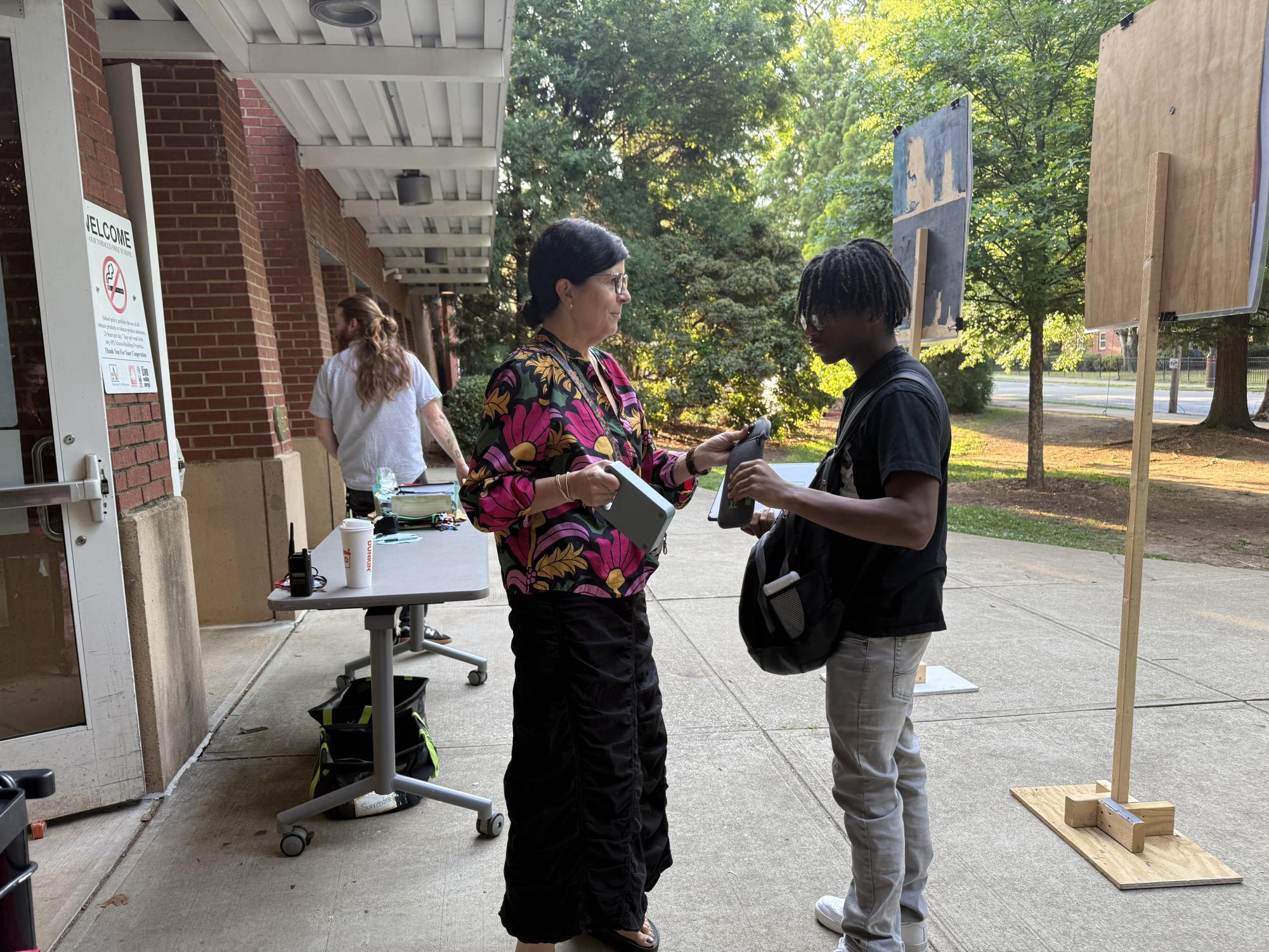










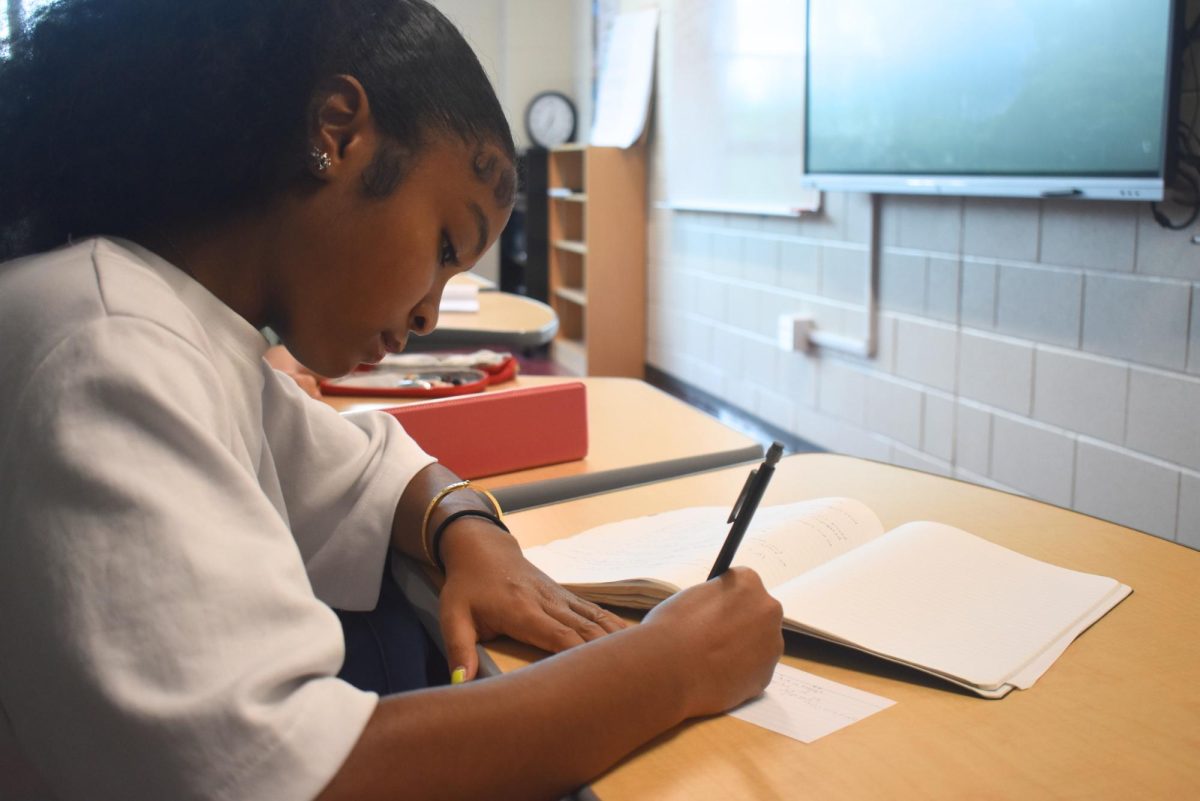

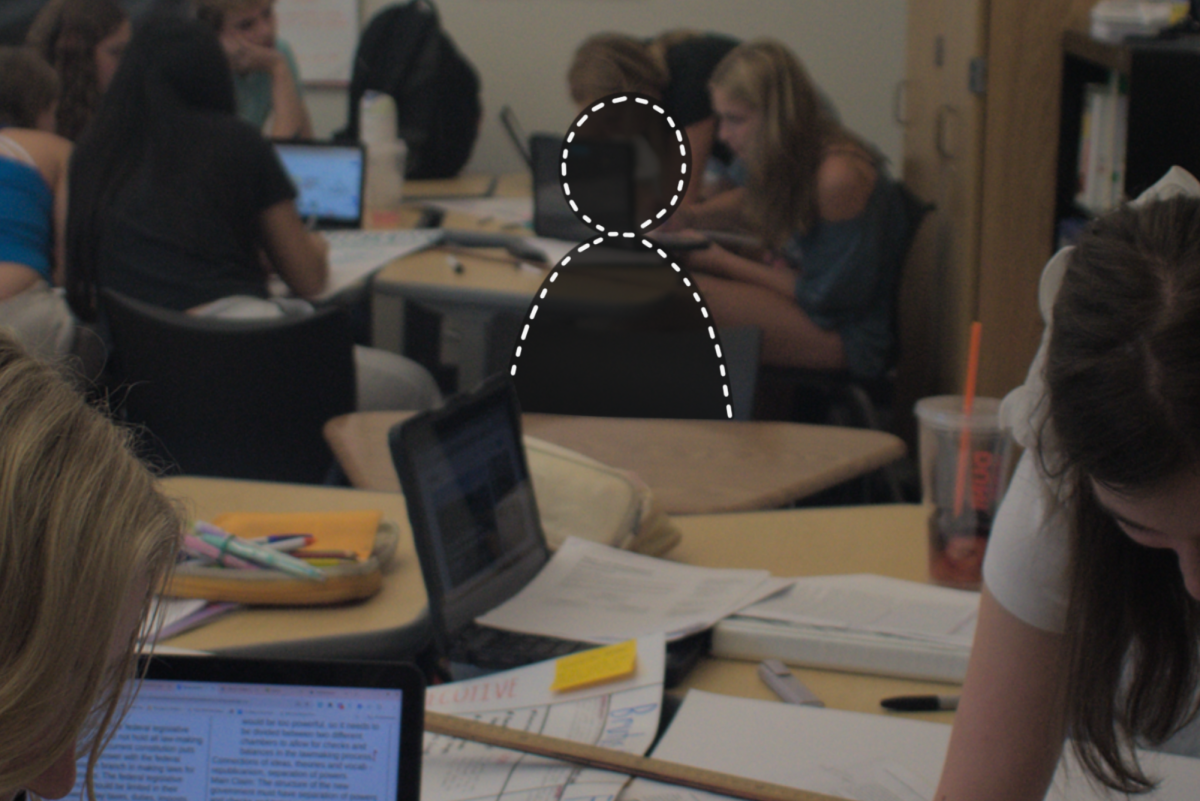

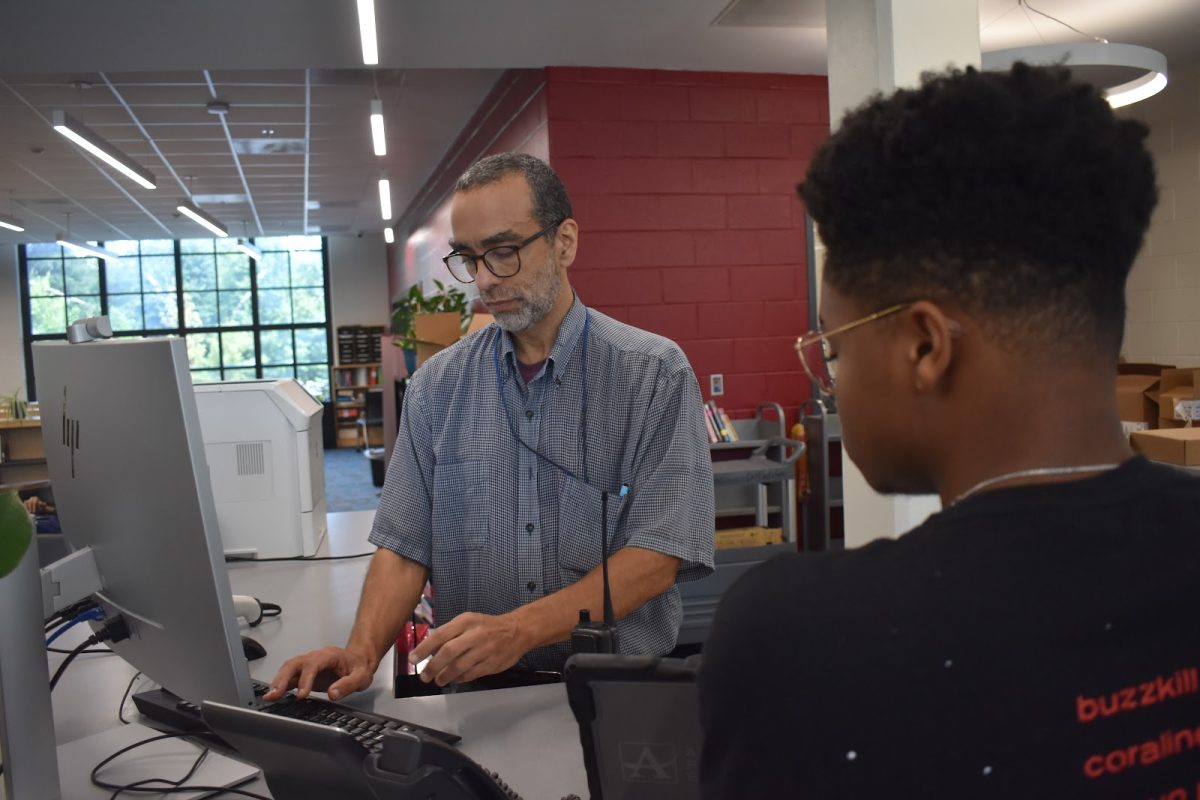
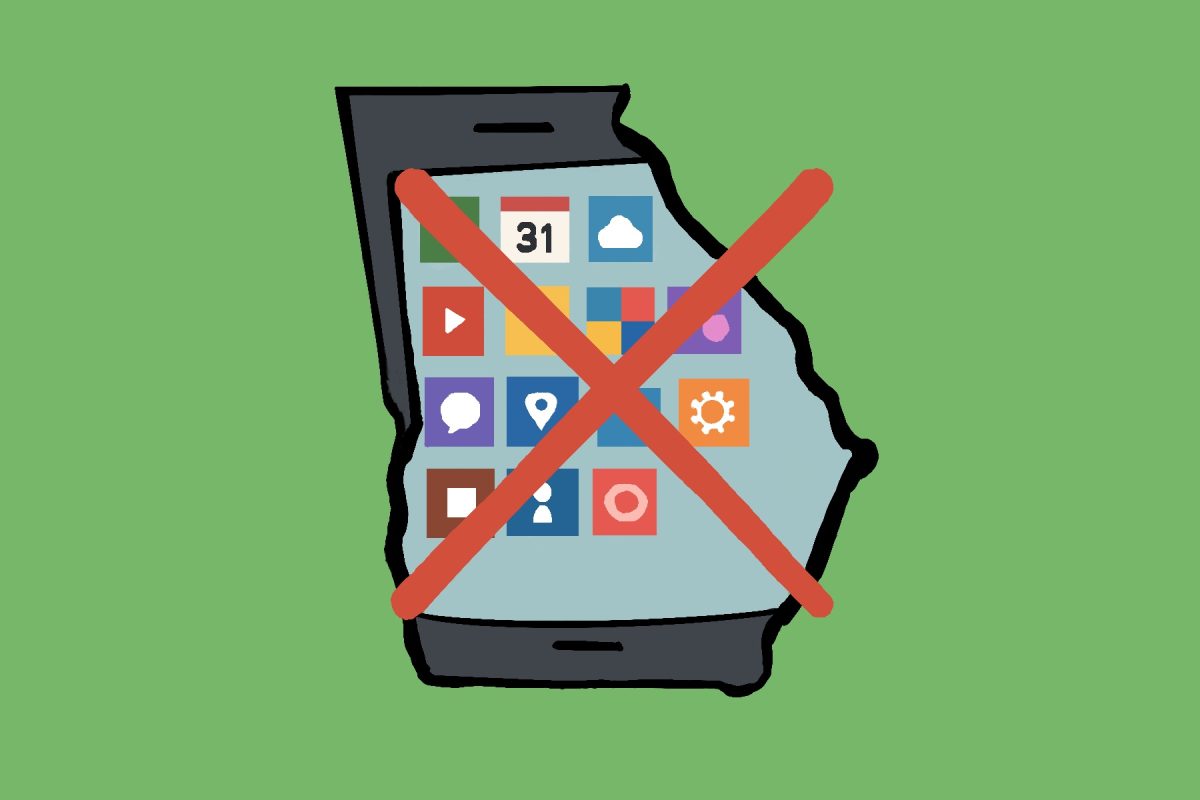
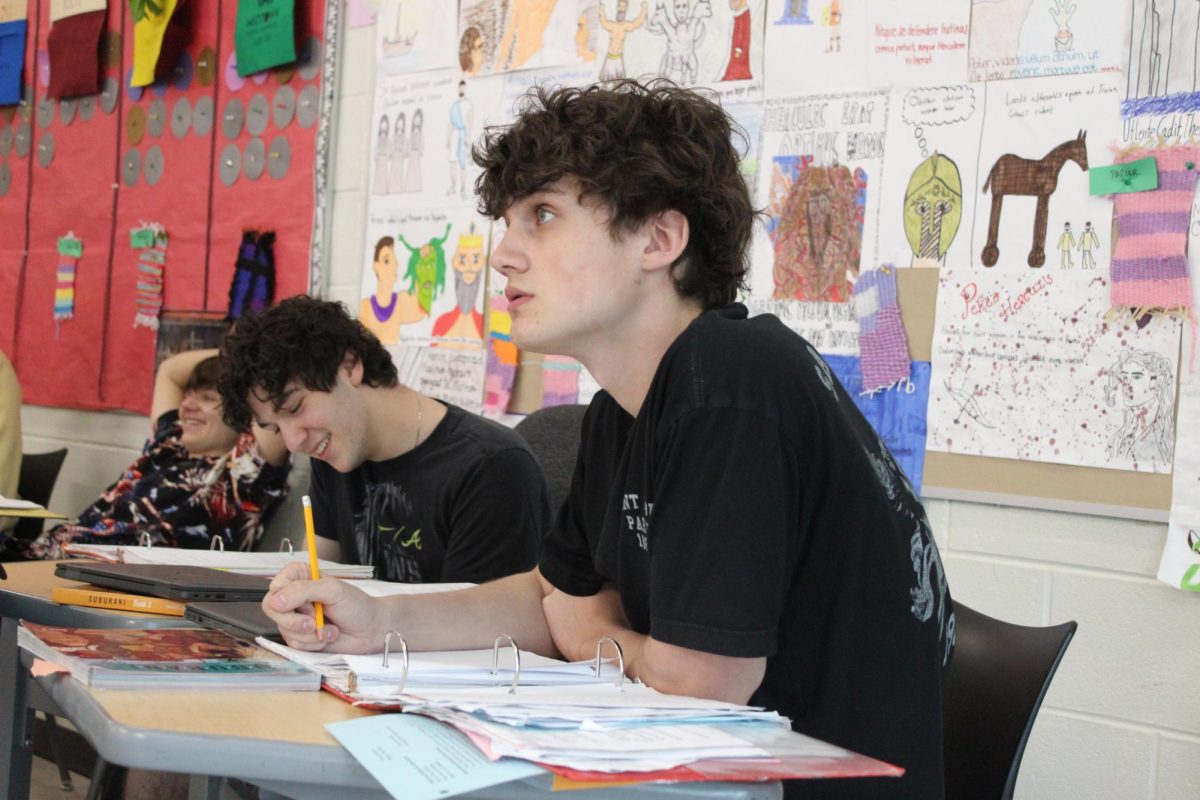
![Lamar Young [right] stands with fellow counselors. Young served as a counselor for 15 years at Midtown, providing critical support for students and parents.](https://thesoutherneronline.com/wp-content/uploads/2025/04/IMG_3800-1-1200x584.jpg)

